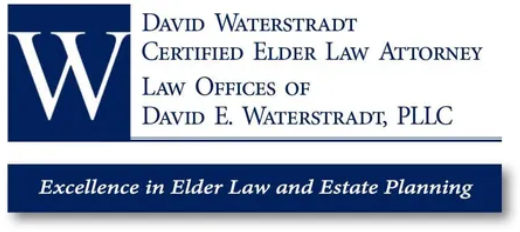
Options for Elder Law Adults and Their Living Arrangements
Navigating the Choices For Your Loved Ones
Managing the care needs of an aging parent can be a daunting task. When it becomes clear that an older adult can no longer care for themselves safely in their home, there are many options to consider such as the quality of their care, their safety, and the cost (including when and how Medicaid and/or Veterans benefits might become available). These considerations become confusing when faced with last minute decision making, marketing campaigns and promises of salespeople who are under pressure to fill rooms. Most people are even confused by the different options available and sometimes the wrong placement decision for a loved one can be disastrous.
When people begin looking for care for older adults, they become exposed to many labels. Words like “independent living,” “assisted living,” and “nursing homes” are tossed around, often interchangeably and imprecisely. In fact, while there are many “levels of care” available for older adults seeking housing options, understanding those levels is only part of what people need to understand in order to make good choices. To fully understand senior housing options, people need to recognize that this is an industry and, like most industries, the options they are being offered are shaped by the business models of the companies that own these facilities.
Care at Home. Keeping your loved one at home may mean bringing in caregivers to help with everything from housekeeping to medication and personal care. Home health care aides can assist with the activities of daily living, and home nurses can help with medical care and some personal care. It’s possible to get service 24 hours a day, but that is costly and many who choose to age in place only need support for part of the day.
Respite Care. Respite care is not a full-time care option, but provides a break for family caregivers. Respite care allows the individual to stay in a community that meets their needs for a short period of time while the primary caregiver gets a break. Many of these facilities feel like a vacation to the individual. Sometimes respite programs are used to provide a test for the assisted living facility, allowing the elderly individual to see how life in the facility would be before making the move permanently.
Residential Care Homes. These are private homes that allow residents to live together with live-in caretaker. Often the seniors will have their own room and possibly bathroom, while enjoying communal common areas. Nursing services and daily living help are provided, all while allowing the individual to stay in an environment that feels more like “home.”
Nursing Homes. Nursing homes are ideal for elderly individuals who are very frail or who need round-the-clock medical care. These facilities have skilled nursing services available around-the-clock, while also providing activities for residents. Rooms may be shared, and all meals are taken in a communal dining facility.
Assisted Living. This is the place for seniors who don’t need a high level of nursing care, but do need assistance with medication and daily living tasks. They can’t live on their own, but still need and want privacy and some freedom. Assisted living facilities have staff available in all hours and provide private apartments with some small kitchen areas, though meals are provided with care if they are wanted. Social activities and transportation services help seniors stay active and engaged. Those with Alzheimer’s will get care in a separate area designed specifically for their needs.
Cost of course is a huge worry and determining factor. That is where we can help. The Law Office of David E. Waterstradt, PLLC have been helping families navigate this confusing road and can assist in helping your loved ones keep as much as they can and assist in getting Medicaid and/or Veteran’s benefits in helping pay for whichever type of facility may be necessary for them.
Three Steps to Get You Started:
1. Obtaining a medical diagnosis of the elderly person will help determine the level of care necessary.
2. Getting an idea of the person’s financial situation, bank accounts, property owned, investment accounts.
3. Calling the Law Offices of David E. Waterstradt, PLLC (231) 773-1169








